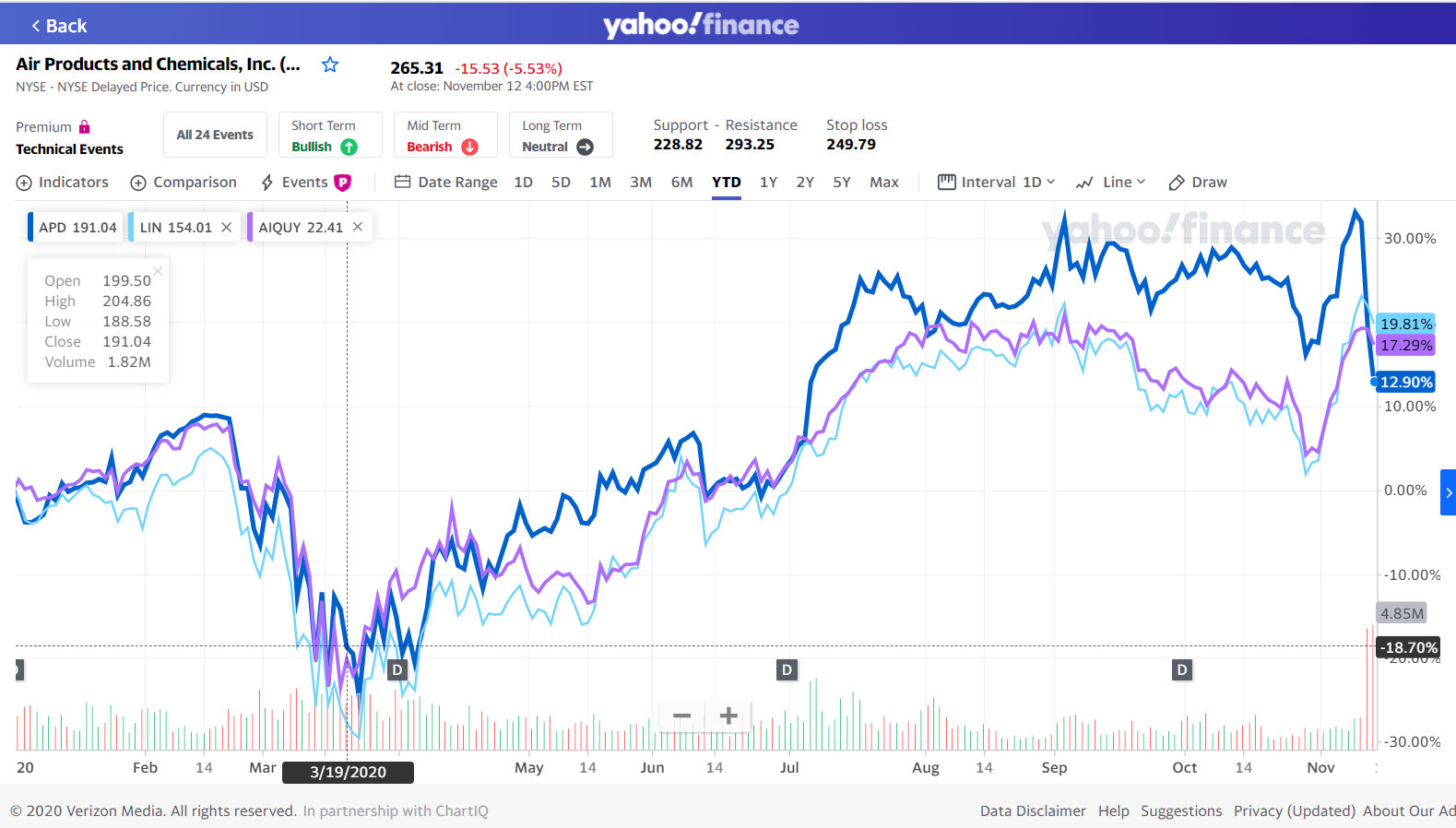Oil prices have plunged dramatically since mid-2014.Brent closed at $48.40 today on the NYMEX. This is a far cry from the over $100 a barrel that seemed to be the floor up until a few months ago.
Conventional wisdom holds that lower crude oil prices should benefit chemical firms as they use oil as one of the key ingredients in making the various chemicals and related-products. However not all chemical firms benefit from lower oil prices. This is because some of them use natural gas as opposed to oil for their feedstocks. Hence price of natural gas affects them more than price of oil.
From an October, 2014 article in ICIS, the industry publication:
The collapse in crude oil prices will cause pain for petrochemical companies. One might think that lower oil prices would result in lower feedstock costs, boosting margins. This dynamic may work to some extent, but is far outweighed by the impact on prices.
Chemical prices move with crude oil, and the impact on margins tends to be more favourable on the upside versus the downside. Why? Because when oil prices are moving higher, producers dictate the conversation on pricing. Conversely, on the downside, the pricing discussions are dominated by buyers.
The article is worth a read in its entirety. Here is another interesting part from the article:
Chemical companies with significant assets in the US have been getting a double benefit – not only do they use mainly low natural gas based feedstocks, but also reap the benefit of high chemical prices which are based on crude oil.
Although around 80% of US cracker feedstocks are derived from natural gas liquids (NGLs) – ethane (58%) and propane and butane (22%) based on 2013 statistics from ICIS – US chemical prices follow crude oil.
Source: Commentary: Oil puts chemicals over a barrel, October 17, 2014, ICIS
Asian and European chemical firms should benefit from cheaper oil since they mostly use oil-based naphtha for feedstock. Hence compared they are a better bet than American chemical stocks.
Among European chemical majors, BASF, the world’s largest chemical maker can be avoided since lower oil prices is actually hurting the firm due to its direct exposure to oil through its Wintershall unit. Since BASF derives about 30% of revenue from this unit low oil prices negatively impacts BASF.
Ten European chemical stocks are listed below for consideration:
1.Company:Air Liquide (AIQUY)
Current Dividend Yield: 2.65%
Country: France
2.Company:Arkema (ARKAY)
Current Dividend Yield: 3.66%
Country: France
3.Company: Solvay(SVYZY)
Current Dividend Yield:3.29%
Country: Belgium
4.Company: Akzo Nobel(AKZOY)
Current Dividend Yield: 3.38%
Country: The Netherlands
5.Company:Syngenta AG (SYT)
Current Dividend Yield: 3.50%
Country: Switzerland
6.Company: Linde AG (LNEGY)
Current Dividend Yield: 2.25%
Country: Germany
7.Company: BayerAG (BAYRY)
Current Dividend Yield: 2.09%
Country: Germany
8.Company: K+S AG (KPLUY)
Current Dividend Yield: 1.20%
Country: Germany
9.Company: Yara Internationa (YARIY)
Current Dividend Yield: 3.26%
Country: Norway
10.Company: Royal DSM(RDSMY)
Current Dividend Yield: 4.10%
Country: The Netherlands
Note: Dividend yields noted above are as of Jan 15, 2015. Data is known to be accurate from sources used.Please use your own due diligence before making any investment decisions.
Disclosure: Long AKZOY

